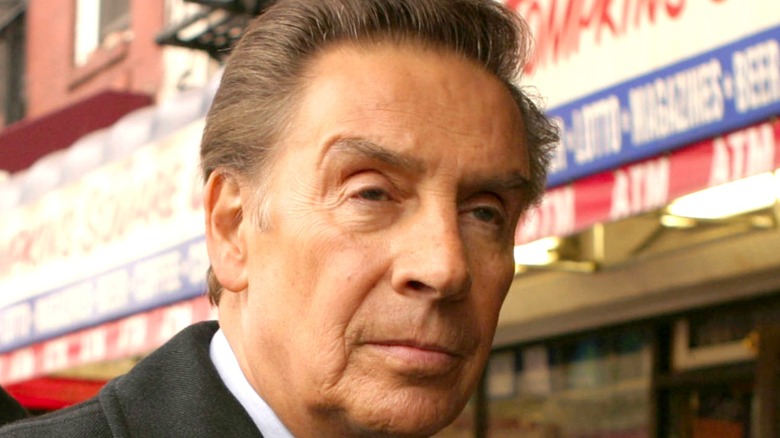
Over 31 years since its debut, "Law & Order" remains a television mainstay, a decades-old franchise with multiple successful spin-offs still airing. The stately old series is so beloved that its original chicken soup for the cop drama soul formula is staging a comeback. As before, and just as we like it, half the episode will go to the police who investigate the crime, and the other half to the district attorneys who prosecute the accused. Compared to most cop dramas, "Law & Order" is thin on the personal strife between its characters, yet we get to know each of them over the years in ways that highlight both their flaws and their potential.
We've discussed the best characters from the original series before. This time, we're taking a closer look at the detectives who served the NYPD's fictional 27th Precinct. This ranking is based on what impact each had on the show, and, subjectively, whether or not they were good at their jobs. Opinions will always vary, but if you think you've guessed who will be our number one, well, you're probably right.
Joe Fontana
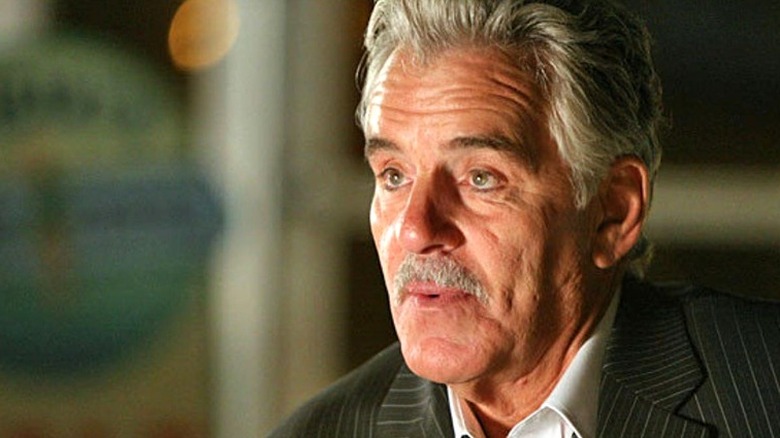
Dennis Farina, who died in 2013, was a character actor mainstay whose tough guy persona made him a reliable force in the entertainment industry. "Manhunter," the original film adaptation of the Hannibal Lecter novel "Red Dragon," benefits from his solidity, and "Midnight Run" is a classic. Yet Farina, as Detective Joe Fontana, was stuck skiing uphill when he signed on for the 15th season of "Law & Order." Detective Fontana had the unenviable task of replacing Lennie Briscoe after a 12-season run, and Fontana's abrasive Chi-town attitude didn't win him fans during his introduction.
Fontana immediately butted heads with Van Buren, which was another strike against him for fans who had long since chosen sides. His slick attitude and willingness to skirt the rules during investigations were also not what we'd call endearing. His sarcastic sense of humor lacked Lennie's dry, knowing warmth, giving the impression that he rarely cared about the victims. Hell, he pissed off Jack McCoy more than once. Fontana hangs on for two seasons, barely. It's an ignoble streak for the otherwise excellent Farina, but Fontana was a crap cop.
Nina Cassady
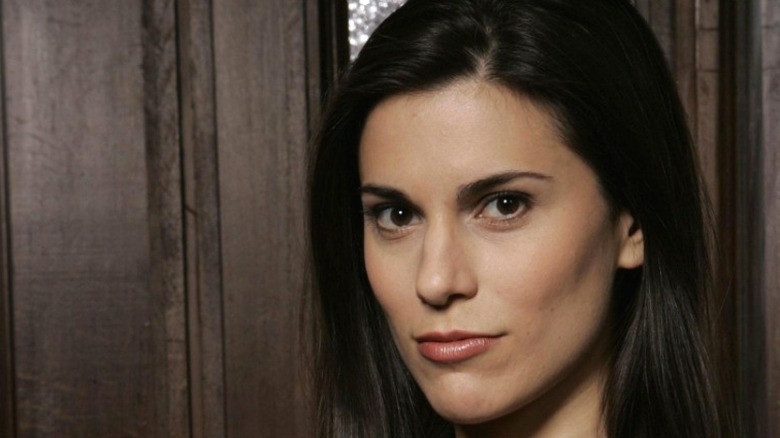
You know it's going to be bad when the bulk of your character's personality is based on how much Van Buren resents your existence and your appearance. It's both unfortunate and problematic that Detective Cassady is the only female homicide detective to appear on the flagship "Law & Order" series, and that she's quickly painted as inexperienced and unprofessional. Her debut on the show is tied to a shooting at a beauty parlor, which is some grimacingly on-the-nose writing. Her departure is equally inelegant, vanishing from the series after an episode in which Cassady wrecks an interview to the point of nearly sinking the whole case.
Cassady, owing to that lack of experience, adds little to most investigations. None of this is on the actor. Again, it's gross that this is half of the extent of gender diversity in the 27th's homicide division. But there's no getting around the fact that Cassady was an uninteresting cop, handed a bag of cold leftovers as Fontana's replacement.
Nick Falco
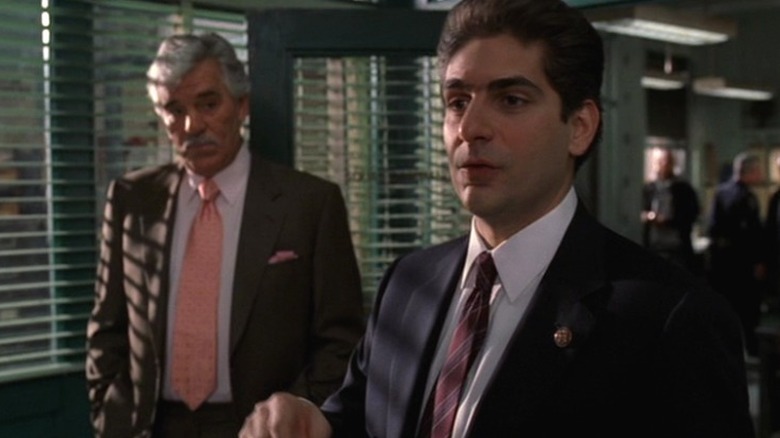
Michael Imperioli guested — he's listed in the main credits, but c'mon — as Detective Nick Falco for a measly four episodes, with a return appearance as a suspect in a fifth appearance a year later. Ranking him this low on the list is solely due to that fact, as Imperioli stepped up to cover for Jessie L. Martin when Martin quickly dipped out to reprise the role of Tom Collins for the film adaptation of "Rent." Falco gets to be Fontana's foil for his brief tenure, doing his best to work the grimy crime scenes of New York while Martin's Detective Green recovers from a gunshot wound.
There's nothing special to say about the cases Falco worked. Imperioli did his best to make Falco a notable character with a vibrant personality, and he gets a good send-off with an episode in which he's implicated in a violent murder. With Imperioli able to properly work his acting chops, we get a glimpse of what we could have had over a longer term. You were too brief, Falco, but we'd have kept you over Fontana in a heartbeat.
Kevin Bernard
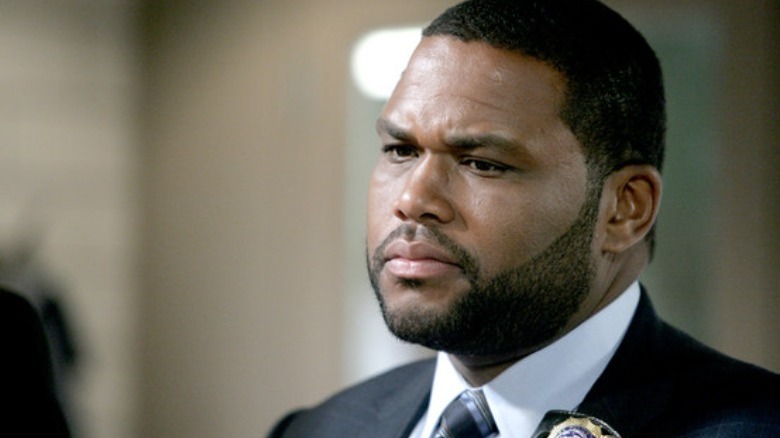
As a former investigator for the Internal Affairs Bureau, Kevin Bernard has the deck stacked against him when making friends on the homicide beat. It doesn't help that he's Detective Green's replacement, or that he was originally brought in as a guest to squeeze the precinct when Green's officer-involved shooting began to stray past legal boundaries. Ugliest of all, he's a dollar store Bunk Moreland, a wannabe tough who thinks that chomping a cigar will get him through a tough situation with a decomposing corpse.
Bernard is brash and opinionated, with a slate of views that make it hard to agree with his investigative methods or behavior at a crime scene. He's not a bad dude, but he's the epitome of an exhausting cop. The best thing about Bernard is his willingness to be there for Detective Lupo. The second best is that he's only on board for the final two seasons. As the man on the scene, we could take or leave Bernard, but his loyalty to his friends and coworkers is a plus in his favor, making him a good watch despite our dislike.
Max Greevey
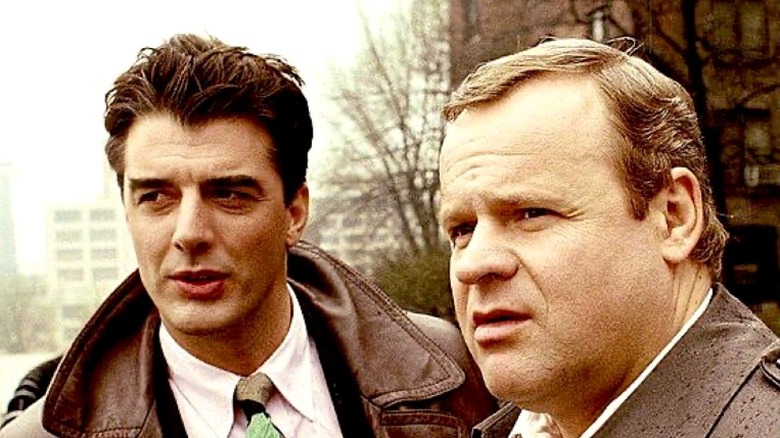
Detective Greevey was one half of our cop-side introduction to the world of "Law & Order" way back in 1990. Played by George Dzundza and lasting for only the 1st season, Greevey's impact has more to do with the lingering effect his offscreen death has on Detective Mike Logan than anything he did on screen. He brought a hint of constant strain to his duties, which is a pretty good quality when it comes to being a homicide cop.
As that cop, Greevey was fine. He had a titch of personality and a proper New York attitude. Being a year-one guy, he didn't have enough of a caseload to grow past his on-paper behavior. More than a little bit judgy when dealing with both victims and suspects, as befits the stereotype of the Irish Catholic detective, he at least committed to his investigations and had no trouble chasing down the right bad guy. He did help set the tone for the series, and for that, he deserves a fair shake from our nostalgia.
Phil Cerreta
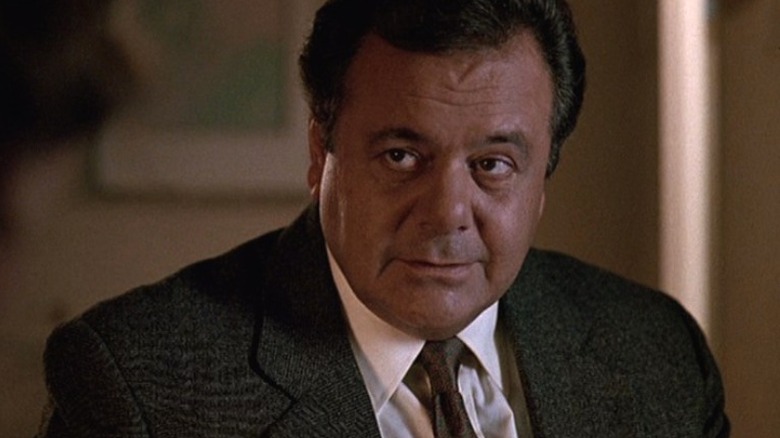
After Greevey came his Italian counterpart, Phil Cerreta. Another long-time New York cop trope, Cerreta benefited from being played by Paul Sorvino, a man who can play any old timey Italian-American archetype and make it feel like a genuine character. Lasting for only two seasons, however, Cerreta is mostly a binge-watcher's final hurdle before the Lennie Briscoe era begins.
Cerreta is a career officer from a working family. His approach to cases is measured and genteel, typically treating grieving families and witnesses with respect. It's an approach that works, and it's something that should be highlighted as a positive. It's easy to lose sight of our collective humanity when investigating the worst that humanity can do. Cerreta was always mindful that he was talking to people, not names on a list. Unfortunately, Cerreta is also basically fridged to upset the popular Mike Logan. Though he does survive an undercover gig that goes haywire, Cerreta suffers enough permanent damage that the character has to leave the show.
Rey Curtis
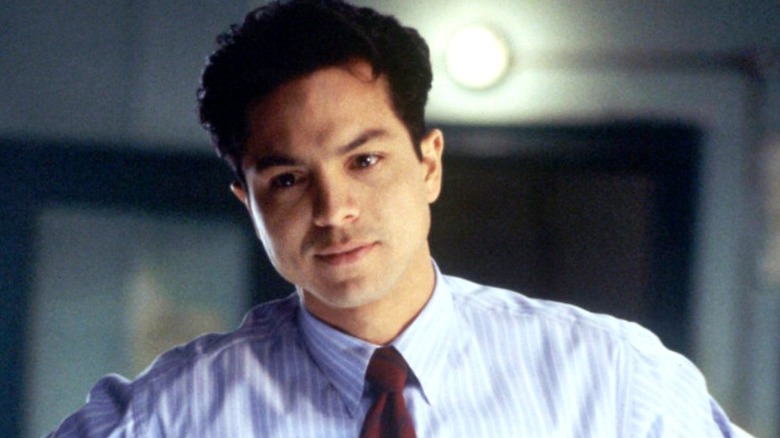
Detective Curtis made a pretty good dent on "Law & Order" as a man dedicated to solving a given case in spite of his heavy-handed personal politics. At least those politics, staunchly and sometimes oddly conservative, were seldom the central point of an episode. What tended to steal more of the spotlight was Curtis' role as the series' surprise honeypot.
It's hyperbolic to say it felt like Curtis couldn't go an episode without someone trying to grab his buns, but it was enough of an issue to become part of his personal storyline. With the series keeping a natural focus on the police, it's hard to know what his wife, Deborah, thought of all this. Instead, she dies of complications due to multiple sclerosis, years after Curtis is no longer a series regular.
As a cop, at least, Curtis was dogged and competent, keen to the advance of technology. Overall, he did pretty well as a crime scene investigator, rarely locked into being a hot slice of a person. Curtis was flawed, to be sure, but the series remembered to keep him human.
Cyrus Lupo
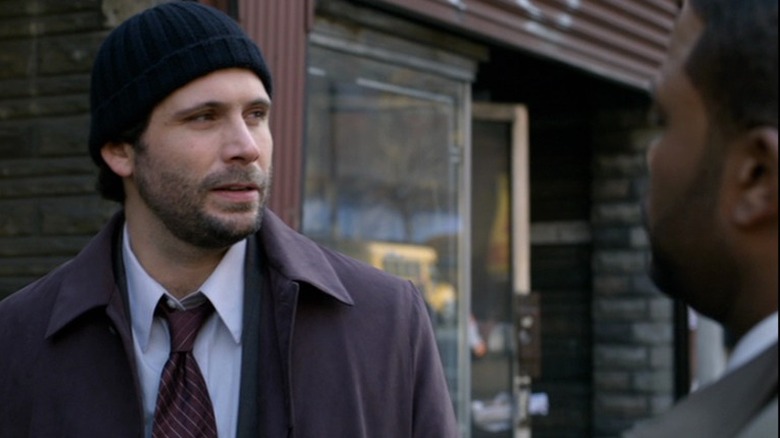
The funniest thing about the season 18 arrival of Detective Cyrus Lupo is that the actor playing him, Jeremy Sisto, had starred in the season-ending episode immediately prior as an unrelated defense attorney. The emotional whiplash is furthered by the heavy-duty nature of Lupo's first case. A rash of assisted suicides are classified as homicides, and Lupo's brother is the first victim audiences meet. That level of personal tension sticks with Lupo for the rest of his tenure, but the show is actually good about giving Lupo room to show why that much emotion matters to him.
In addition to being a genuinely decent detective where it counts, Lupo gets a strong episode to showcase what life with PTSD can look like. It's not his military-affiliated work with the Intelligence Division that shocks him into a downward spiral, but a Christmas crime scene. The seasons he's part of are full of overwrought cases and too-big issues, but Lupo provides the necessary humanity they need to be watchable. He gets some stinker episodes, but overall, Lupo is the sort of guy who grows on you.
Ed Green
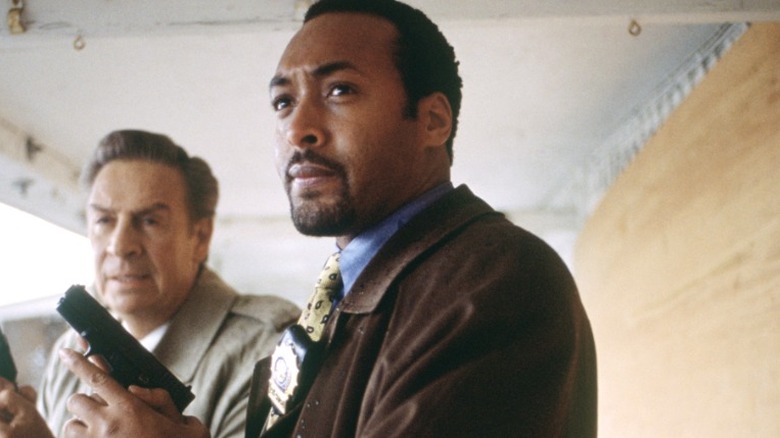
"Law & Order" gets a lot of necessary crap for showing the stuff cops try to get away with in a good light. Detective Green epitomizes this kind of behavior for a while, starting off as a brash, unorthodox new foil for Lennie Briscoe after Curtis departs to care for his wife. But Green settles down before the end of his first season, becoming more comfortable in his place by Lennie's side. Green's uglier cop tendencies are gradually tempered and he does get called out for the stuff he tries, but it's both poignant and important that his iffy attitude towards the law ultimately helps him out the door.
For all of his flaws, Green is a great character to watch. He's active and lively, up to date on the trends, and aware of the world around him. He's also our go-to foot chase guy during the Briscoe years, hoofing it down alleys while the stately old Lennie goes to get the car. Green nurses the series through a series of transitions, becoming the reliable street counterpart to McCoy when all our other standbys are gone.
Mike Logan
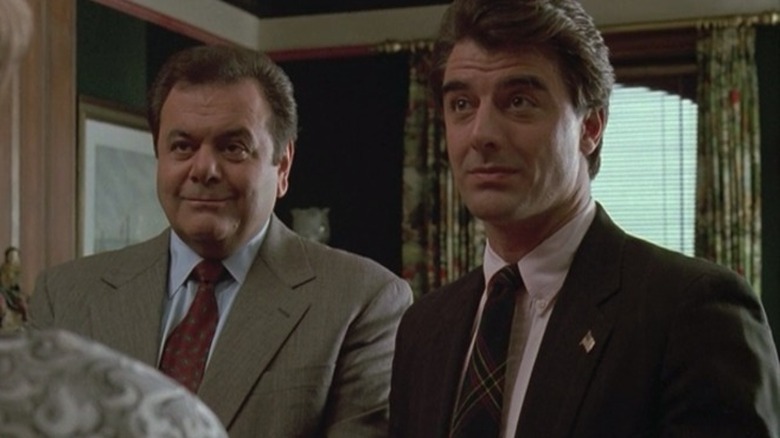
In terms of impact on the franchise, you can't dismiss the importance of Detective Mike Logan. In a series without a central main character, Logan still drew the audience in with his good looks, his attitude, and his unceasing tenacity as a cop. His temper gets him in trouble on more than one occasion, and it's also his undoing. As we've said before, the guy he socked in his final main series outing had it coming, but the cost was the series' first flagship cop.
It's a turn that slowed Detective Logan down, but it didn't stop him. He's the star of the only "Law & Order" TV movie to date, and he later returned for four seasons of "Criminal Intent," one of the franchise's two most successful spin-offs. Logan is the emotional sink for much of his tenure; two of his partners depart under violent circumstances, and he's abrasive to the district attorneys featured on the show for various reasons. But he's a pretty good cop. Over a hundred episodes of intricate caseloads are Logan's monument to his time on "Law & Order." Almost none of them are a bad watch.
Lennie Briscoe
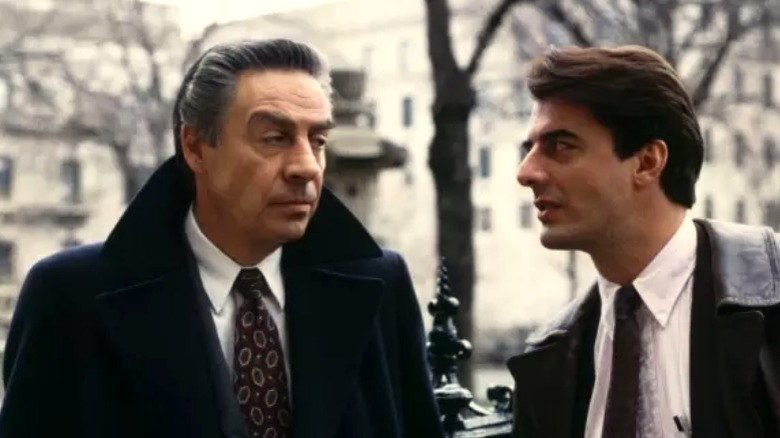
It's Lennie Briscoe. We've waxed poetic about him before, but Detective Briscoe is the hoary but sincere heart of "Law & Order." He's the cranky old man we'd want resolving our bizarre warehouse kink-scene murder. He's looking down at our corpse with a pithy one-liner, but he's also ready to work out who did it to us until the case is closed and in the courtroom.
Jerry Orbach was formally regarded, as the New York Times recalls, as a "living landmark" for his role as the city's best loved cop. It's an oddball bit of trivia that speaks towards the impact Briscoe had on audiences and real-life police officers. Yes, there's much to unpack about the state law enforcement today, but Lennie is the type of detective we wish the world had more of. He's not perfect, and he's not above pulling some of the slick tricks that the police shouldn't get away with, but he also does his job regardless of his feelings. He's human, empathetic, and dogged. The real-life horrors and complexities of law enforcement don't enter into Lennie's story. He's fiction, but he's also comforting.
Jerry Orbach died in 2004. "Law & Order" continued until 2010, and in all those years, they never got away from Lennie's wry ghost. To the franchise's credit, they never tried.
Read this next: The 12 Best Neo-Noir Films Ranked
The post Every Detective in Law & Order Ranked Worst to Best appeared first on /Film.
0 Commentaires